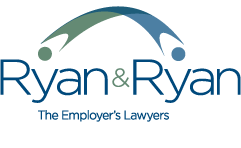Earlier this week, the Connecticut Supreme Court heard argument regarding the extent of free speech protections in the Connecticut workplace. Specifically, the Connecticut Supreme Court will determine whether an employee’s speech occurring during, or arising from, the course of that employee’s job-related duties is protected by the Connecticut Constitution. The United States Supreme Court has held that an employee’s speech occurring during, or arising from, the course of that employee’s job-related duties is not protected by the First Amendment to the United States Constitution. If the Connecticut Supreme Court answers in the affirmative, then it will have determined that the free speech protections in the Connecticut Constitution – at least as to an employee’s speech in the course of that employee’s job-related duties – are broader than the free speech protections in the First Amendment.
The Plaintiff sued his former employer alleging that it retaliated against him, in violation of CGS § 31-51q, by terminating his employment because he expressed his opposition to that employer’s alleged practice of overvaluing its clients’ real estate investments. The Plaintiff alleged that the Defendant’s practice was a matter of public concern, and therefore that his disclosure of that practice constituted speech on a matter of public concern that should be protected by the Connecticut Constitution and CGS § 31-51q, a whistleblower statute.
The Plaintiff’s position asks the Connecticut Supreme Court to find that the United States Supreme Court reasoning in Garcetti v. Ceballos is inapplicable to the Connecticut Constitution. In Garcetti, the United States Supreme Court held that the First Amendment to the United States Constitution does not protect a governmental employee’s speech on matters occurring during, or arising from, the discharge of that employee’s job-related duties. In other words, the United States Supreme Court held that in such a situation a governmental employee is not speaking as a citizen, to whom the First Amendment would presumptively apply, but as an employee, to whom the First Amendment would not apply. The Garcetti decision does not expressly apply to the Connecticut Constitution.
The Plaintiff’s position, therefore, also asks the Connecticut Supreme Court to decide that Schumann v. Dianon Systems, Inc., 304 Conn. 585 (2012) does not apply to the Connecticut Constitution. It was in Schumann that the Connecticut Supreme Court held that Garcetti applies to a § 31-51q claim brought against a private employer by an employee who speaks on a matter occurring during, or arising from, the discharge of that employee’s job-related duties. Notably, however, Schumann did not address whether Garcetti should be extended to § 31-51q claims based on the free speech provisions of the Connecticut constitution. The instant case, therefore, seeks to have the Court differentiate between the protections afforded by the First Amendment to the United States Constitution and the protections afforded by the Connecticut Constitution, and to have the Court find that the free speech protections under the Connecticut Constitution are broader.
Please contact William Ryan for more information, or to see how we can help you.
